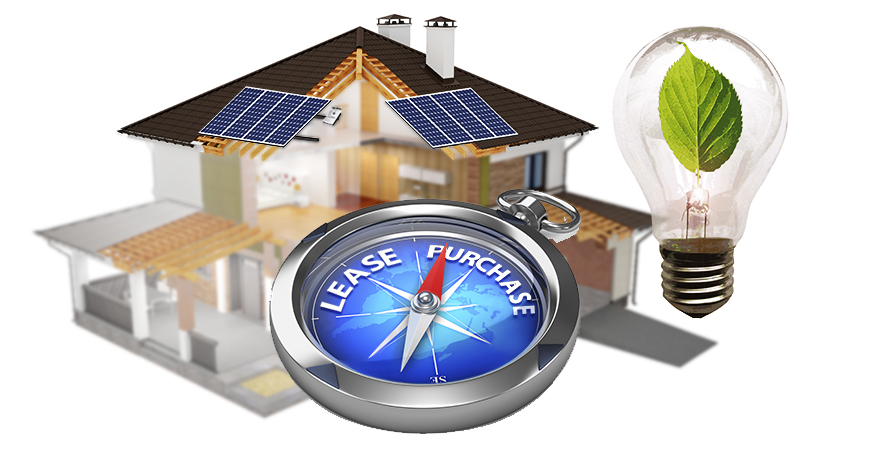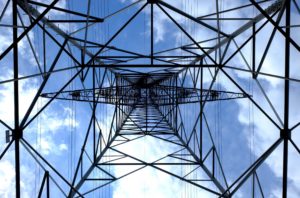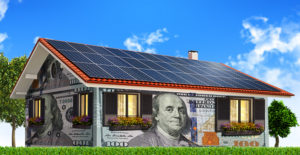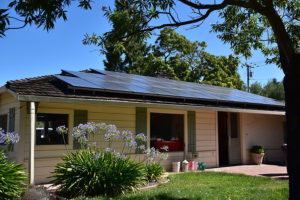Stated below are some of the key differences between leasing and purchasing residential solar panel systems to help homeowners gain a full understanding about all installation options.
The main difference is the ownership of the system. In a leasing agreement, the company owns the solar panels and the homeowner is obligated to buy the electricity produced by their system, and to pay higher costs as electricity rates rise (a constant outflow of money). With purchase, the homeowner owns the system outright, there is no increase in the price of the electricity the system produces and the system pays for itself in 4 – 7 years.
Knowing these facts can help property owners make the right decision so that they can reap the benefits and get the best long-term value.
THE BENEFITS & DRAWBACKS OF LEASING (PPA) & PURCHASE:
Reduction of your Current Electric Bill
Lease: You would save some money by leasing when compared to doing nothing, but by how much? Lease rates increase each year, and further increase the total cost of the installation for solar energy roof panels. In addition, under a lease, there is a constant outflow of your money.
Purchase: There are several low interest financing options, and when you finish paying off your loan the electricity produced by the system is FREE. The amount you save on your electric bill will increase over time because electricity rates rise.
Consequences & Benefits when Selling your Home
Lease: If you cannot get the buyer to qualify for the solar lease (must have excellent credit) or if the buyer is not interested in taking over the lease, then you have to pay the leasing company to break your lease. This can limit the number of potential home buyers.
Purchase: You can move your residential solar panel systems to your new home or you can sell it as part of the house which will improve the sale price and marketability. (According to the U.S. Department of Energy’s (DOE) Lawrence Berkeley National Laboratory, home value increases from $3.90 to $6.40 per solar watt installed.)
Tax Benefits
Lease: You give up the 30% federal tax credit and you cannot write off lease payments as a tax deduction.
Purchase: You get the 30% tax benefit and when you purchase a solar system with a $0 down solar loan or PACE (Property Assessed Clean Energy) loan, the interest payments are tax deductible. This benefit alone will yield a far better return on your investment when compared to a lease.
Solar System Ownership/Equity after Completion of Financing
Lease: After paying 20 years of lease payments, you will have zero ownership. You will have the option to extend your lease, buy the system even though you’ve been paying for it all this time, or you can have the leasing company remove the system.
Purchase: After you complete the financing of your solar panel system, it will continue to produce free electricity.
Backup Power during a Power Failure
Lease: Leased solar systems are designed to turn themselves off during a power outage. You will not be allowed to add a battery backup unit or you will be in violation of your lease contract.
Purchase: You can purchase your system as a battery backup solar panel system from the start or you can add a battery backup later on.
System Maintenance/Upgrades
Lease: Ensures all maintenance is completed, except cleaning. However, the only maintenance they may complete is replacing a central inverter after 10 years. You are also not allowed to upgrade or modify the leased solar panel system.
Purchase: Solar panels and micro-inverters come with a 25-year warranty and have a life expectancy of more than 40 years. Properly installed residential solar panel systems need virtually no maintenance other than a good rain, rinse or cleaning every year or two. You can sell, modify or upgrade with no penalties as you own the system.
After reviewing these facts, property owners can make their decision to get the best long-term value.
To discover more on the advantages of purchasing residential solar panel systems, contact our trusted team or visit www.greenstocksolar.com today!




